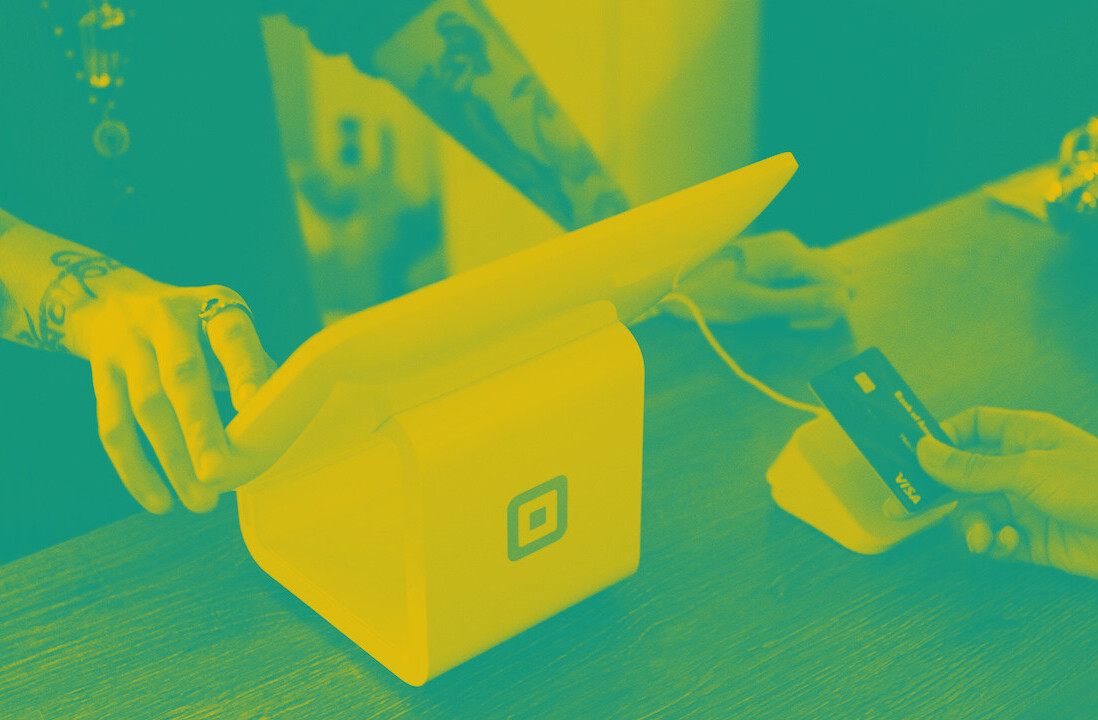
It used to be that a job in finance would set you up for life. Steady, reliable, dependable, calculators and sweater vests. These things come to mind when you think of a career in finance.
Just like in other industries, AI and machine learning are entering the scene and causing great disruption in what used to be one of the most stable career choices. In the US, one report found that 1.3 million bank workers will lose their jobs or be reassigned due to automation. Globally, finance leaders are predicting that 50% of jobs could be lost.
As these technologies develop, which jobs will become obsolete? Will a robot be doing my taxes in the future? At the same time, what new opportunities are on the horizon?
We chatted with Frank van den Brink, Chief Employee Experience Officer (aka CHRO) at ABN AMRO to get his insights on some of the latest trends in the industry. As he explained:
“There’s a shift going on. We occasionally call it the big migration because you see that automation, business process optimization, robotics, and robotic process automation (RPA) are growing and improving.
This will definitely impact operation work in the financial industry — but new jobs will also emerge. The biggest challenge for all the corporates in financial services is: How do we reskill and upskill roughly 50-60% of our employees? I expect there will also be new jobs which we cannot even think of now.”
But we can still speculate. Based on the trends we’re seeing today, we came up with a list of jobs we predict will be essential in the financial industry of the future:
#1. Fintech headhunter/liaison
Fintech startups, microlenders, and neobanks are disrupting the finance industry and causing larger players like ABN AMRO, ING, and Rabobank to rethink their offerings and put innovation into hyperdrive —bringing rapid change to the industry. It’s also causing banks to begin acquiring, partnering and starting their own internal startups.
For example, recently, some major banks have been fined millions for their failure to detect money laundering (ING shelled out €775 million). But as criminal organizations become more sophisticated in the way they conceal their operations, some banks like HSBC are teaming up with startups that have developed AI-based tracking systems. These can detect even the smallest instances of fraud. Another example can be seen in ABN AMRO’s recent collaboration with Israeli Big Data analytics firm, Thetaray, which recreates human intuition’s decision-making capabilities to identify both existing and previously unknown malicious or suspicious activity of bad actors.
Just like the market they operate in, the life of a fintech startup is volatile and uncertain. Still, younger generations are increasingly turning to innovative tech-based solutions over traditional (but more stable) banks. According to the Millennial Disruption Index, nearly half of respondents are counting on startups to overhaul the way banks work and 73 percent are more excited about financial services offerings from tech companies than from their national bank.
Whether through acquisition or partnerships, it’s clear that fintech will benefit from the expertise and stability larger institutions can provide. Meanwhile, instead of seeing newcomers as a threat, big banks will benefit from the fast-moving innovation (and cool factor) startups can bring.
Want to work at ABN AMRO? They’re hiring.
#2. Self-driving finance engineer
Decentralization and pressure from fintech are also pushing big banks to diversify their services. Instead of traditional banking, many financial institutions may become a source of knowledge to guide individuals in their financial decision-making. This will be crucial in our current economic climate.
Wealth management is becoming even more important with pay as you go and automatic transfers moving our money without us noticing.
Also, sadly, millennials are earning less money than the previous generation and will have less (or possibly even no) help from the government when they retire in a potentially revamped social ecosystem.
Adding more fuel to the financial fire, more people are becoming freelancers (like myself) who throw future financial security in the form of pensions into the wind in favor of month-long digital nomad journeys.
“Roughly 25-35% of the labor market here in Amsterdam is made up of flex workers,” said Van den Brink. “But there is a dilemma. Flexecurity — a term coming from Scandinavia — means that while people would like to have flexibility, they also want to secure their future, otherwise it’s not a sustainable model.
There’s a lot of discussion on how to secure labor in a changing society and changing business models and who should be leading that?” van den Brink added.
This is where financial institutions, with the help of tech, can and are stepping in. As the name implies, wealth management used to be reserved for those who actually have a fair amount of wealth to be managed. But much like the switch towards self-driving cars, self-driving finance may give us independent flexworkers the opportunity to drive our finances autonomously.
Using AI tech, student loans and mortgages could automatically be refinanced at the optimal time, long term investments could be made and then rebalanced when needed.
For those who want more oversight into their finances, innovations in low tech development and human-computer interaction could allow people to design their own savings and wealth management programs.
#3. Sustainable wealth manager
Van den Brink shared that data analytics and sustainability are two of the hottest ‘skills’ needed at the moment. “One of the biggest trends is the sustainability shift. It’s challenging a lot of business models and also changing a lot of earning models. But how do you translate that into skills needed to change business models or support energy transitions for clients?”
It’s not just about transitioning to more sustainable models. Companies and individuals are now benefiting from the trade in sustainable energy. Much like Airbnb and Uber gave us new ways to generate income, green trading could provide new sources of income as well.
But how do you know how many solar panels you’ll need to make a profit or the trade-off between investing in solar vs wind power? As electric vehicles become more popular, so to are government incentives and tax cuts meant to sweeten the deal. But how do you know what applies best in your case?
“In order to make that shift, there’s a big transition going on. We as banks can also stimulate that transition in order to finance, or restructure, or think differently about capital allocation or client transition and processes around it. Another place where we can add value is by sharing knowledge and supporting clients in their transition,” van den Brink explained.
These institutions won’t just be helping individual clients shift towards sustainable practices, they’ll be leading the industry in that direction by teaming up to set new standards. With the purpose of banking for better, for generations to come, ABN AMRO, along with several other banks, signed the Poseidon Principles, committing to help their shipping clients lower carbon emissions.
#4. Cryptoforecaster
Of course, we can’t talk about the future of finance without discussing cryptocurrencies. Big banks have started to research and test the role they could play in this growing field but for many, lack of regulation makes it too risky.
Instead, as van den Brink explained, “We don’t need thousands of people who know how crypto works — applying the tech is more important than creating it yourself. Partnering and understanding the new regulations and fluctuations in the market will be more important.”
Indeed the world of cryptocurrencies is still a very murky area for investors and policymakers alike, making it a wild west of sorts. Because of this, finance professionals who understand traditional markets may be able to apply similar skills.
Superforecasting has become a hot new skill many finance professionals are honing and putting to use to make better predictions. This includes being able to analyze current and past events objectively, breaking down complex problems into smaller pieces, and overcoming potential biases in decision-making. Applying this skill to the cryptocurrency market could help investors better navigate the market.
#5. Trust officer
With the onslaught of data scandals involving tech giants like Facebook and stricter data protection regulations like GDPR, there is a strong spotlight on the use of personal data.
Just recently, Dutch banks came under fire for accessing their customers’ personal spending information to provide personalized ads. One Protection Authority Officer explained:
“data can thus refer to payment transactions with hospitals, pharmacies, casinos, sex clubs or otherwise, from which special personal data and other sensitive data can be derived,”
While self-driving finance may leverage personal banking data to help people manage their finances more effectively, we also have to raise awareness and transparency around data protection measures. This is where a trust officer who can provide clarity around exactly how financial data is being used will be essential.
#6. Cross-company cybersecurity liaison
Externally, we’re seeing that more inter-company collaboration is coming. It’s not just partnering with fintechs that’s needed. With the constantly evolving nature of cybersecurity, everyone, from corporations to startups to policymakers, is realizing that security cannot be ensured on an individual basis. In our interconnected world, we need greater collaboration to ward off the evolving nature of cyberattacks.
The problem is, we’re only just getting started. This year ABN AMRO hosted the country’s first cybersecurity conference for large Dutch companies, SMEs and students. While this is a first step, we’ll need someone who is dedicated to, not just preventing cybersecurity attacks but also liaising with cybersecurity officers across entities.
These are our predictions but it’s still unclear what the future of finance will bring. What is clear is that, while tech may replace a number of jobs, many more will pop up as our needs evolve.
As van den Brink said, “It’s an interesting time to be in. At the moment, there’s an imminent clash going on between technology and humanity, which will impact all six outlined future jobs.”
While technological advancements in banking are necessary the human factor should not be taken for granted, he adds. “We must retain skills such as creativity, originality, initiative, critical thinking, and leadership. Talented people will always be needed in finance.”
Get the TNW newsletter
Get the most important tech news in your inbox each week.
Whatever your specialism, with ABN AMRO your talent and creativity will help build the bank of the future. Find out what it’s like to work for ABN AMRO and learn more about their exciting job opportunities.





